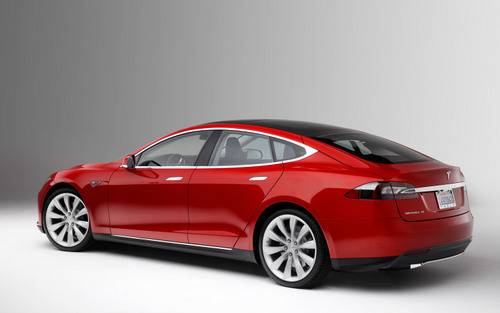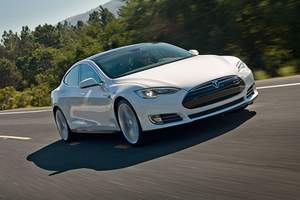
Tesla vs. TADA.
Tesla Motors, seller of the much desired Tesla Model S, is no foreigner to the realm of legislative battles. Within more than a few states, including New York and North Carolina, Tesla has managed to win lawsuits and prevent blockage of their non-dealership sales technique, resulting in more of the electric luxury cars on the road than ever.
Unfortunately, Tesla seems to have hit a wall in Texas. Mainly due to the efforts of the Texas Auto Dealers Associate (TADA), who insisted Tesla’s sales would hurt family-owned dealerships in Texas, Tesla was unable to gain exemption from the laws that prevent in-state sales through non-franchised dealers. As a result, Tesla has been forced to partake in some frustrating, and some downright silly, sales techniques in order to serve the nearly thousand or so Texan Tesla Model S owners without breaking franchise laws.
For example, the “galleries” Tesla operates within Texas are absolutely forbidden from allowing interested parties to test drive a car. Tesla employees also can’t name actual prices or refer customers to out-of-state stores. The most they can do is direct customers to Tesla’s website and state that the Tesla Model S is “around the same price as other luxury cars.” Even if a buyer is initially happy to overlook the limited information Tesla can provide (and many people aren’t), their complications won’t end after the purchase of the car. The car must be handled as an out-of-state transaction, and even Tesla service centers located in Texas are forbidden from displaying the Tesla logo or advertising publicly that they will work on Tesla cars. The Model S cars that are dropped off at buyers’ homes arrive in an unmarked truck without instruction (and remember, no one has test driven them), and without any final touch-ups to rid the car of road grime or similar faults. Since the transaction is technically an out-of-state purchase, the sale also results in higher interest rates than non-Texas buyers, disqualification from the buyback program, and the arrival of an uninspected car with no plates and the sales tax unpaid.
So why did Tesla fail in Texas? Elon Musk, Tesla CEO, has recently guided two bills through the Texas legislature in order to build a rocket launching facility in southeastern Texas to support his SpaceX program with little opposition, yet his $345,000 payment to lobbyists failed to push the House or the Senate to hold chamber-wide votes on legislation to repeal the restrictions on Tesla Motors. The resistance was largely due to the $780,000, more than double what Tesla paid, given by TADA and other car dealers. TADA also wisely focused their money on 26 lobby contracts, while Tesla avoided direct political contributions. According to the TFPJ (Texans for Public Justice) report last month, if Tesla plans on succeeding in 2015, Musk will have to send his money flow into the political spectrum.
What franchised Texas car dealerships fear is the direct-to-consumer sales technique that Elon Musk brings to the table. Much like Apple — whom he has repeatedly pointed out as his sales inspiration — Musk has chosen

to forgo the hard sell, commission driven sales techniques of ordinary dealerships, opting instead for uniform prices and what he calls a more “educational approach.” As he told ABC News in August, “We actually train people to educate. We always wanted to be a really low-key kind of friendly environment, where we’re not constantly trying to close deals.” It’s impossible to ignore this direct opposition against the stereotyped middleman dealership sellers, whom Musk believes are prejudiced against electric cars, and unliked by most customers.
Musk also told the Texas Tribune that “Texas is a free-enterprise state that prides itself on being the freest in the nation — I think that’s a good thing.” When even electricity providers in Texas are subject to competition, it’s hard to disagree with Musk’s statement that “The laws that are in place to protect the big established auto dealer groups are very un-Texas.” Musk knows that the dealers are powerful allies in local political campaigns, but remains hopeful that having the public favor will lead to his eventual success, since he believes that if the legislatures continue to vote against what Musk believes is the majority’s desire, it is a perversion of justice.
Bill Wolters, the president of the Texas Automobile Dealers Association responded to Musk’s accusations by saying, “This happens all the time. Someone wants an exception to the franchise laws. If we made an exception for everybody that showed up in the legislature, before long the integrity of the entire franchise system is in peril.”
Wolters insists, too, that the only thing Texas ever asked from Musk was to comply with the franchise laws everyone else has to follow, and that Tesla would in fact fare better selling through a network franchise, one that would be of their own choosing.
While the franchise system once made sense as a way to deal with the capital-driven evolution of the auto industry with storing, marketing, and servicing cars, it has also resulted in higher prices for buyers. In fact, distribution can make up about 30 percent of a car’s final price. The internet has been largely responsible for making direct sale logistics much easier, resulting in more industries choosing to sell directly to the customer.
On the other hand, dealer associations across the state argue that consumers receive better service from franchised dealerships, particularly in the areas of warranty and lemon-law claims, than they would from factory-owned stores. They also argue that the franchise laws and licensure laws have worked well over time to protect the consumer. Typically, dealers are the ones who provide important services such as final inspections, detailing of vehicles before delivery, customer education and service during and after sales. Whether or not the Tesla business model can also achieve these services should be a major factor of whether or not the Tesla business model has long-term merit.
Published on March 16, 2014
Other related stories you might enjoy:
Tesla Battles With Dealers and State Legislatures
Tesla/NY Times Factual Dispute Reveals Different Truth
Battle of the Esses-New S-Class Mercedes vs Tesla Model S

0 thoughts on “Texas Dealers Stymie Tesla”